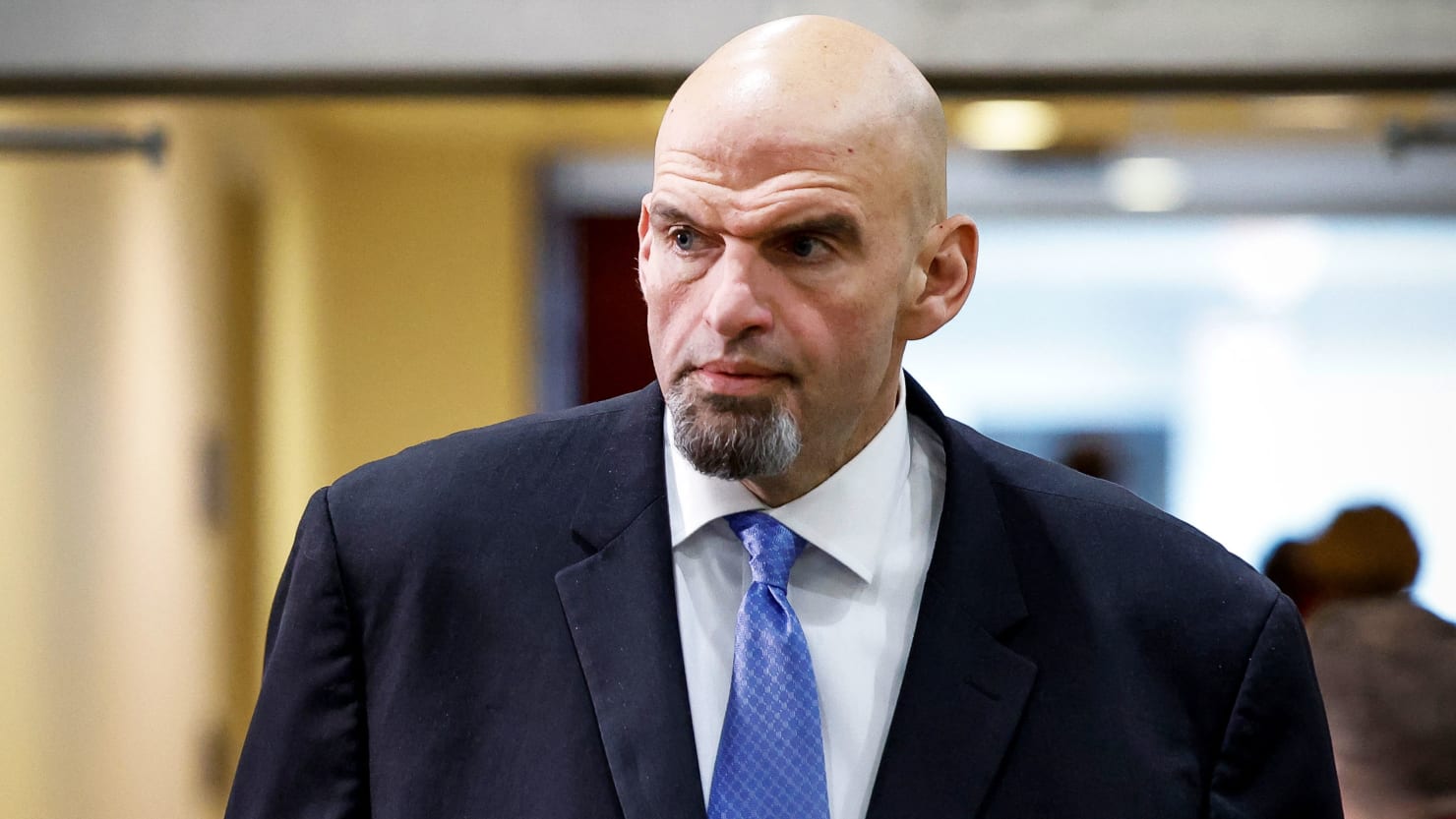I’ve only worked with Sen. John Fetterman for a short time, but in the last two months, I’ve been struck by his resilience and heart. Everyone’s experience is different, but John is doing exactly what everyone should when they’re facing depression: seek help and take the time to get better.
Seeking help when you need it is a sign of strength, not weakness. In admitting himself to a Maryland hospital for “clinical depression,” as John’s chief of staff put it, John is demonstrating that for all of us.
For people who have experienced depression, seeing someone else suffering can take you back to your own experience. If you are seeing the news about John, it may bring up old feelings for you. It did for me.
I can’t speak to John’s personal experience, and I’m not comparing my own struggles with depression to what he’s going through, because everyone is different. But I’ve learned that there’s a lot of good that comes from people like John and me speaking openly about our mental health challenges.
I first experienced depression in my late teens, and then again in my 30s when I was a young mom. For me, depression drained hope away, and the promise that I’d ever feel hopeful again. I couldn’t feel joy or love or contentment, and I couldn’t see a way I’d ever feel that way again.
The worst part about depression is how treacherously it saps your capacity to function—treacherous because depression can feel like a personal weakness rather than what it is: a malfunction of the brain.
So, I want to say that, if you or someone you know is feeling this way, there’s help, and you can feel better. You can reach the National Suicide and Crisis Lifeline by dialing or texting 988.
It takes courage to ask for help, but you can do it.
In my 30s, when my psychologist suggested that I take a diagnostic test, and then informed me that I clearly was suffering from depression, I rejected her diagnosis. What’s wrong with me is me, I thought. I told myself that I could fix this. But then I realized she was right. I listened. And thank God for her. Thanks to her empathy and her medical and professional expertise, I slowly swam back to the life and people I loved, and I got better.
I was blessed to get early help, and to have access to the medicines and treatment that allowed me to recover. Everyone should have the same access to mental health care, regardless of our insurance, our ZIP code, or our age. Yet that is far from true for many Americans and that’s so wrong.
I’m proud of Minnesota’s legacy of helping and healing people experiencing mental illness, and I’m determined to carry on this work. Minnesota Sen. Paul Wellstone worked across the aisle with his wife Sheila by his side to champion mental health parity—the principle that insurance companies should cover mental health just like they cover other medical care. After Paul’s death, Sen. Al Franken worked with Paul’s son David to write the final rules for the law Paul pushed.
“My experience taught me how important getting help can be. And I also remember the experience of slowly emerging from depression: a little more energy every day.”
— Sen. Tina Smith
Their work put us on the path toward mental health parity, but there’s more work to do to truly make the spirit of that law a reality and to ensure everyone has complete coverage for mental health services.
So, I ask you to join me. Speak out. If you or someone you love is struggling with mental health challenges, don’t let anything get in the way of getting help, any more than you would resist getting help if you had the flu or a broken arm.
My experience taught me how important getting help can be. And I also remember the experience of slowly emerging from depression: a little more energy every day. A little more capacity to pay attention to the people and things I love. The colors of the world came back.
I’m thinking of John and his family and wishing him the best. He has a terrific team around him in D.C. and back home in Pennsylvania. And while I can’t wait to see him back in the Senate, working on issues he cares so deeply about, I know he is doing the right thing—taking care of himself.
Tina Smith is a Democratic senator from Minnesota. As a member of the Senate Health and Education Committee, Smith is a leader in the fight to make mental health care more affordable and accessible. She has spoken on the Senate floor and regularly shares her story about her personal experience with depression in an effort to destigmatize talking about mental health.






